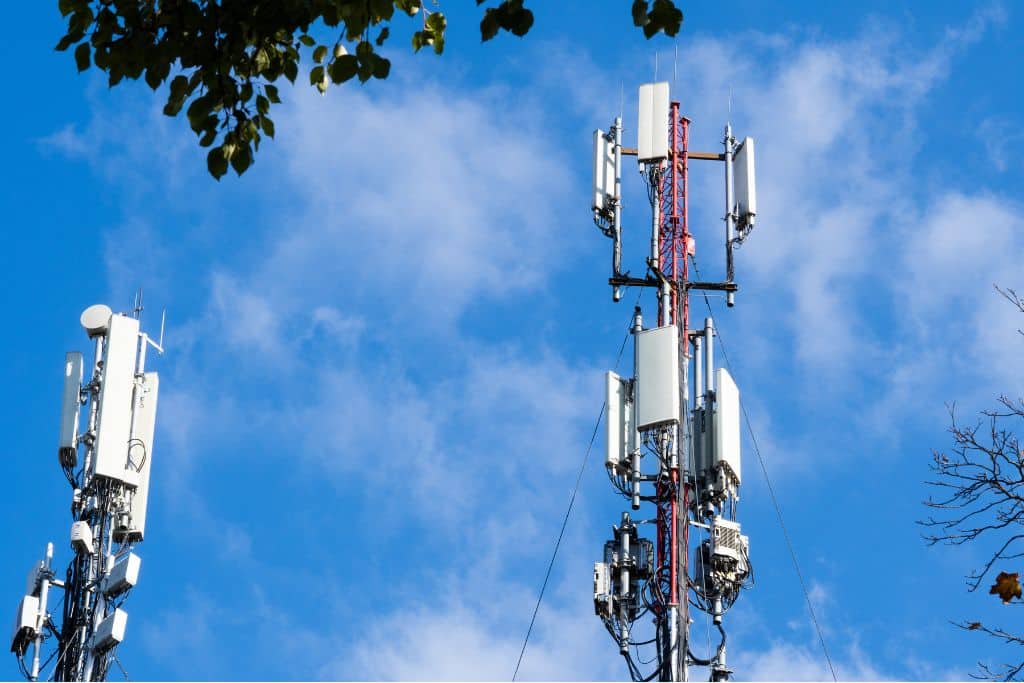The advent of 5G has emerged as a game-changer in the way people communicate and share data. Beyond providing mobile users with stronger cellular connectivity, the technology promises to transform how businesses innovate and meet their sustainability goals completely.
—
5G and Sustainable Business Communication
5G is the fifth generation of cellular networking designed to deliver reliable connectivity over high-band spectrum at speeds of up to 20 Gbps (billions of bits per second). The technology also boasts ultra-low latency rates of less than 10 milliseconds, making super-fast and reliable connections a reality.
Communication is vital to any organization, enabling employees to collaborate, exchange information, and make decisions effectively. 5G’s features will revolutionize several aspects of how brands communicate with personnel and customers.
Internal Communications
Generally speaking, faster and more reliable internet connections will transform internal activities, from company-wide updates to specific end-to-end messaging. Because 5G is capable of delivering fast speeds to a large capacity of devices, employees can access information and communicate with each other without any lag.
The technology can also improve collaboration and productivity. With faster, more reliable internet connectivity, team members can work on collaborative projects in real time and get work done more efficiently. For instance, video conferencing can become smoother, streamlining face-to-face and virtual meetings.
5G can support more data traffic and handle more devices simultaneously, which can be highly beneficial for enterprises that work with many cloud-based applications and services. Staff can enjoy faster and more reliable access to these resources.
External Communications
5G will also transform how businesses communicate with customers and external stakeholders. For example, it can facilitate the creation of advanced apps that improve collaborations with other professionals.
It could also open doors to international partnerships, which may not have been possible previously due to limited bandwidth and unreliable connections. Adopting 5G technology for communication can also make it easier for potential customers to discover a brand through improved location services and fewer performance issues.
Improved Remote Working Conditions
With remote and hybrid work expected to continue going strong in the coming years, 5G will be pivotal in addressing the barriers to widespread adoption. Improved speeds and reliable connectivity through 5G-enabled infrastructure will transform communication by ensuring smoother calls, messaging and video meetings.
5G would also benefit remote staff recruitment and retention. Finding the ideal employees can be difficult when organizations are restrained by distance. With faster and more robust internet, people can work from anywhere and still stay connected to their colleagues. This can improve work-life balance without compromising productivity and save on the costs of renting physical office spaces.
New Communication Possibilities
With 5G, companies can explore newer ways to communicate that were impossible with previous wireless technologies. For example, it can facilitate the adoption of augmented reality and virtual reality in business communication, which can be especially beneficial in enhancing training sessions, simulations, and remote collaborations. AR and VR systems can also help brands create more interactive and immersive experiences, allowing them to improve customer engagement and brand loyalty.
5G and Sustainability
As with the emergence of any new, far-reaching technology, 5G is not without its environmental impacts. For a starter, deploying 5G infrastructure could disrupt entire ecosystems. The technology’s increased data transmission speed and capacity means putting up more structures in areas native animal and plant species have long occupied.
Wireless waves may also affect endemic and migratory birds. A study found that exposure to cell tower radiation for just 5–30 minutes disfigured the eggs of sparrows.

Keeping these towers operational consumes a lot of energy, too, contributing to global warming. Recent research shows introducing 5G could triple the CO2 emissions from telecom towers in India. On the bright side, the study also suggests using solar PV hybrid systems to power these infrastructures could reduce up to 55% of the emissions.
The Need for a Proactive Approach
Eco-conscious practices are increasingly becoming imperative. Adopting 5G technology is key to achieving these objectives. For one, a 5G cell site uses up a mere 15% of the energy of a comparable 4G cell site to transmit the same data. By switching to these energy-efficient networks, businesses can already begin to reduce their operational carbon footprint.
5G is also a key enabling technology for innovative solutions that can promote sustainability in operations and contribute to other environmental goals. For example, it can facilitate greater adoption of Internet of Things (IoT) devices in communication. These advanced sensors can collect data, automate processes, and monitor equipment performance in real-time, improving efficiency and lowering costs.
You might also like: 4 Commonly-Used Smart City Technologies
By enhancing remote work, 5G technology can lead to a noticeable decrease in greenhouse gas emissions associated with day-to-day commuting. Focusing on sustainable practices can also improve profitability and enhance customer attraction, especially among younger generations. A recent study shows 92% of millennials are more likely to patronize ethical brands.
Challenges Ahead
While the potential benefits of 5G in business applications are immense and undeniable, a few key challenges remain. Taking advantage of the technology requires enterprises to have the necessary infrastructure in place, such as 5G-compatible devices, networks, and software. Upgrading existing systems can be expensive and time-consuming – it costs around $76,000 just to rent a helicopter to place 5G equipment on a cell tower.
To offset carbon emissions, tower stations must be powered by renewable energy sources. Setting up those systems often requires substantial capital investment.
Faster speeds and more reliable connectivity can also increase the risks of data breaches and sustained cyber attacks. Enterprises must ensure they have the necessary security measures to secure their data and networks.
Not everyone will have immediate access to 5G, which could widen the digital divide and make offerings more inaccessible. Nevertheless, it is seeing increased usage across individual and commercial applications. The International Data Corporation estimates 155 million 5G devices will be shipped out by 2027.
You might also like: Can AI Help Achieve Environmental Sustainability?
Explore Exciting Developments in 5G Technology
5G technology can potentially revamp business communication and accelerate operations toward net zero. With faster connectivity, improved collaboration, and new communication possibilities, companies have abundant opportunities to expand their reach internally and externally. The technology will also allow fast-track organization-wide efforts to pursue sustainability goals through reduced energy consumption and lower carbon emissions.
This story is funded by readers like you
Our non-profit newsroom provides climate coverage free of charge and advertising. Your one-off or monthly donations play a crucial role in supporting our operations, expanding our reach, and maintaining our editorial independence.
About EO | Mission Statement | Impact & Reach | Write for us


















